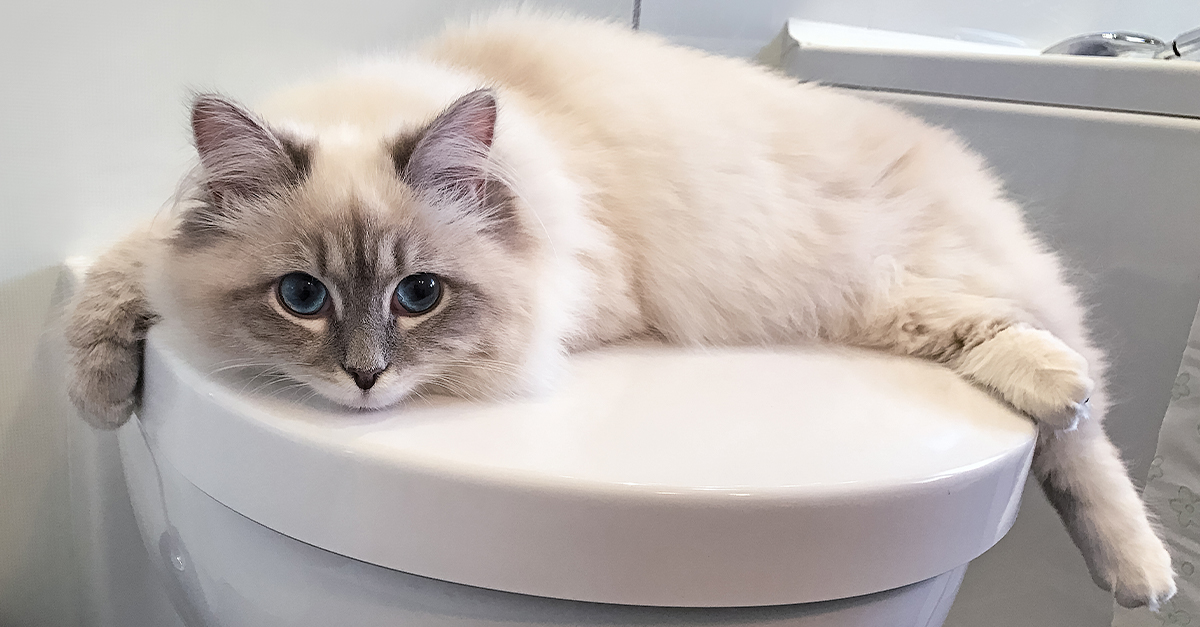Potential Issues of Flushing Cat Poop Down Your Toilet - Protect Your Pipes
Potential Issues of Flushing Cat Poop Down Your Toilet - Protect Your Pipes
Blog Article
What are your thoughts about Can You Flush Cat Poop Down The Toilet??

Intro
As pet cat owners, it's necessary to bear in mind how we deal with our feline good friends' waste. While it may seem hassle-free to purge pet cat poop down the commode, this practice can have harmful effects for both the atmosphere and human health.
Ecological Impact
Purging cat poop introduces damaging microorganisms and parasites right into the water, posing a considerable risk to marine environments. These pollutants can negatively impact aquatic life and concession water quality.
Health and wellness Risks
In addition to ecological problems, flushing pet cat waste can likewise posture health and wellness dangers to human beings. Pet cat feces may include Toxoplasma gondii, a parasite that can create toxoplasmosis-- a potentially serious health problem, specifically for expectant females and individuals with damaged immune systems.
Alternatives to Flushing
Thankfully, there are safer and more liable ways to throw away feline poop. Consider the adhering to options:
1. Scoop and Dispose in Trash
One of the most usual approach of taking care of feline poop is to scoop it right into a biodegradable bag and throw it in the trash. Make certain to utilize a committed trash scoop and dispose of the waste immediately.
2. Usage Biodegradable Litter
Opt for naturally degradable feline clutter made from products such as corn or wheat. These litters are eco-friendly and can be safely dealt with in the trash.
3. Bury in the Yard
If you have a backyard, consider hiding cat waste in an assigned location far from vegetable gardens and water resources. Make sure to dig deep adequate to stop contamination of groundwater.
4. Set Up a Pet Waste Disposal System
Invest in a pet waste disposal system particularly designed for feline waste. These systems use enzymes to break down the waste, decreasing smell and ecological impact.
Conclusion
Accountable animal possession prolongs past providing food and shelter-- it also entails proper waste administration. By avoiding flushing pet cat poop down the commode and going with alternative disposal techniques, we can lessen our ecological footprint and safeguard human wellness.
Why Can’t I Flush Cat Poop?
It Spreads a Parasite
Cats are frequently infected with a parasite called toxoplasma gondii. The parasite causes an infection called toxoplasmosis. It is usually harmless to cats. The parasite only uses cat poop as a host for its eggs. Otherwise, the cat’s immune system usually keeps the infection at low enough levels to maintain its own health. But it does not stop the develop of eggs. These eggs are tiny and surprisingly tough. They may survive for a year before they begin to grow. But that’s the problem.
Our wastewater system is not designed to deal with toxoplasmosis eggs. Instead, most eggs will flush from your toilet into sewers and wastewater management plants. After the sewage is treated for many other harmful things in it, it is typically released into local rivers, lakes, or oceans. Here, the toxoplasmosis eggs can find new hosts, including starfish, crabs, otters, and many other wildlife. For many, this is a significant risk to their health. Toxoplasmosis can also end up infecting water sources that are important for agriculture, which means our deer, pigs, and sheep can get infected too.
Is There Risk to Humans?
There can be a risk to human life from flushing cat poop down the toilet. If you do so, the parasites from your cat’s poop can end up in shellfish, game animals, or livestock. If this meat is then served raw or undercooked, the people who eat it can get sick.
In fact, according to the CDC, 40 million people in the United States are infected with toxoplasma gondii. They get it from exposure to infected seafood, or from some kind of cat poop contamination, like drinking from a stream that is contaminated or touching anything that has come into contact with cat poop. That includes just cleaning a cat litter box.
Most people who get infected with these parasites will not develop any symptoms. However, for pregnant women or for those with compromised immune systems, the parasite can cause severe health problems.
How to Handle Cat Poop
The best way to handle cat poop is actually to clean the box more often. The eggs that the parasite sheds will not become active until one to five days after the cat poops. That means that if you clean daily, you’re much less likely to come into direct contact with infectious eggs.
That said, always dispose of cat poop in the garbage and not down the toilet. Wash your hands before and after you clean the litter box, and bring the bag of poop right outside to your garbage bins.
https://trenchlesssolutionsusa.com/why-cant-i-flush-cat-poop/

As a fervent person who reads on Can You Flush Cat Poo or Litter Down the Toilet?, I think sharing that post was mandatory. Are you aware of anybody else who is occupied with the topic? Be sure share it. Many thanks for your time invested reading it.
Schedule Now Report this page